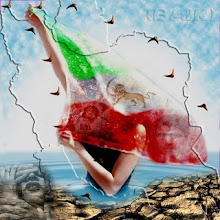Thursday, December 23, 2010
2012: Nasa says Beginning of the End or Why the World Won't End?
Scenes from the motion picture "2012." Courtesy Columbia Pictures. Remember the Y2K scare? It came and went without much of a whimper because of adequate planning and analysis of the situation. Impressive movie special effects aside, Dec. 21, 2012, won't be the end of the world as we know. It will, however, be another winter solstice.
Much like Y2K, 2012 has been analyzed and the science of the end of the Earth thoroughly studied. Contrary to some of the common beliefs out there, the science behind the end of the world quickly unravels when pinned down to the 2012 timeline. Below, NASA Scientists answer several questions that we're frequently asked regarding 2012.
Question (Q): Are there any threats to the Earth in 2012? Many Internet websites say the world will end in December 2012.
Answer (A): Nothing bad will happen to the Earth in 2012. Our planet has been getting along just fine for more than 4 billion years, and credible scientists worldwide know of no threat associated with 2012.
Q: What is the origin of the prediction that the world will end in 2012?
A: The story started with claims that Nibiru, a supposed planet discovered by the Sumerians, is headed toward Earth. This catastrophe was initially predicted for May 2003, but when nothing happened the doomsday date was moved forward to December 2012. Then these two fables were linked to the end of one of the cycles in the ancient Mayan calendar at the winter solstice in 2012 -- hence the predicted doomsday date of December 21, 2012.
Q: Does the Mayan calendar end in December 2012?
A: Just as the calendar you have on your kitchen wall does not cease to exist after December 31, the Mayan calendar does not cease to exist on December 21, 2012. This date is the end of the Mayan long-count period but then -- just as your calendar begins again on January 1 -- another long-count period begins for the Mayan calendar.
Q: Could a phenomena occur where planets align in a way that impacts Earth?
A: There are no planetary alignments in the next few decades, Earth will not cross the galactic plane in 2012, and even if these alignments were to occur, their effects on the Earth would be negligible. Each December the Earth and sun align with the approximate center of the Milky Way Galaxy but that is an annual event of no consequence.
"There apparently is a great deal of interest in celestial bodies, and their locations and trajectories at the end of the calendar year 2012. Now, I for one love a good book or movie as much as the next guy. But the stuff flying around through cyberspace, TV and the movies is not based on science. There is even a fake NASA news release out there..."
- Don Yeomans, NASA senior research scientist Q: Is there a planet or brown dwarf called Nibiru or Planet X or Eris that is approaching the Earth and threatening our planet with widespread destruction?
A: Nibiru and other stories about wayward planets are an Internet hoax. There is no factual basis for these claims. If Nibiru or Planet X were real and headed for an encounter with the Earth in 2012, astronomers would have been tracking it for at least the past decade, and it would be visible by now to the naked eye. Obviously, it does not exist. Eris is real, but it is a dwarf planet similar to Pluto that will remain in the outer solar system; the closest it can come to Earth is about 4 billion miles.
Q: What is the polar shift theory? Is it true that the earth’s crust does a 180-degree rotation around the core in a matter of days if not hours?
A: A reversal in the rotation of Earth is impossible. There are slow movements of the continents (for example Antarctica was near the equator hundreds of millions of years ago), but that is irrelevant to claims of reversal of the rotational poles. However, many of the disaster websites pull a bait-and-shift to fool people. They claim a relationship between the rotation and the magnetic polarity of Earth, which does change irregularly, with a magnetic reversal taking place every 400,000 years on average. As far as we know, such a magnetic reversal doesn’t cause any harm to life on Earth. A magnetic reversal is very unlikely to happen in the next few millennia, anyway.
Earth, as seen in the Blue Marble: Next Generation collection of images, showing the color of the planet's surface in high resolution. This image shows South America from September 2004. Q: Is the Earth in danger of being hit by a meteor in 2012?
A: The Earth has always been subject to impacts by comets and asteroids, although big hits are very rare. The last big impact was 65 million years ago, and that led to the extinction of the dinosaurs. Today NASA astronomers are carrying out a survey called the Spaceguard Survey to find any large near-Earth asteroids long before they hit. We have already determined that there are no threatening asteroids as large as the one that killed the dinosaurs. All this work is done openly with the discoveries posted every day on the NASA NEO Program Office website, so you can see for yourself that nothing is predicted to hit in 2012.
Q: How do NASA scientists feel about claims of pending doomsday?
A: For any claims of disaster or dramatic changes in 2012, where is the science? Where is the evidence? There is none, and for all the fictional assertions, whether they are made in books, movies, documentaries or over the Internet, we cannot change that simple fact. There is no credible evidence for any of the assertions made in support of unusual events taking place in December 2012.
Q: Is there a danger from giant solar storms predicted for 2012?
A: Solar activity has a regular cycle, with peaks approximately every 11 years. Near these activity peaks, solar flares can cause some interruption of satellite communications, although engineers are learning how to build electronics that are protected against most solar storms. But there is no special risk associated with 2012. The next solar maximum will occur in the 2012-2014 time frame and is predicted to be an average solar cycle, no different than previous cycles throughout history.
http://www.nasa.gov/topics/earth/features/2012.html
Friday, December 17, 2010
Thursday, November 11, 2010
The 'Big Bang' Argument for the Existence of God
Library: Modern: Theodore Schick, Jr.: The 'Big Bang' Argument for the Existence of God
The 'Big Bang' Argument for the Existence of God
Theodore Schick Jr.
Abstract: Some believe that evidence for the big bang is evidence for the existence of god. Who else, they ask, could have caused such a thing? In this paper, I evaluate the big bang argument, compare it with the traditional first-cause argument, and consider the relative plausibility of various natural explanations of the big bang.
The evidence is in. There is now little doubt that our universe was brought into existence by a "big bang" that occurred some 15 billion years ago. The existence of such a creation event explains a number of phenomena including the expansion of the universe, the existence of the cosmic background radiation, and the relative proportions of various sorts of matter. As the theory has been refined, more specific predictions have been derived from it. A number of these predictions have recently been confirmed. Although this is a major scientific achievement, many believe that it has theological implications as well. Specifically, they believe that it provides scientific evidence for the existence of god. Astronomer George Smoot suggested as much when he exclaimed at a press conference reporting the findings of the Cosmic Background Explorer (COBE) satellite, "If you're religious, it's like looking at the face of god."[1] Why? Because something must have caused the big bang, and who else but god could have done such a thing? Astronomer Hugh Ross in his book, The Creator and the Cosmos, puts the argument this way: "If the universe arose out of a big bang, it must have had a beginning. If it had a beginning, it must have a beginner."[2] So beguiling is this argument that astronomer Geoffrey Burbridge has lamented that his fellow scientists are rushing off to join the "First Church of Christ of the Big Bang."[3] In what follows, I will attempt to determine whether such a conversion is the most rational response to the evidence.
The Traditional First-Cause Argument
The problems with the traditional first-cause or cosmological argument for the existence of god are legion. Before we examine the merits of the big bang argument, it will be helpful to have them before us.
The traditional first-cause argument rests on the assumption that everything has a cause. Since nothing can cause itself, and since the string of causes can't be infinitely long, there must be a first cause, namely, god. This argument received its classic formulation at the bands of the great Roman Catholic philosopher, Thomas Aquinas. He writes:
In the world of sensible things, we find there is an order of efficient causes. There is no case known ... in which a thing is found to be the efficient cause of itself; for so it would be prior to itself, which is impossible. Now in efficient causes it is not possible to go to infinity, because . . . the first is the cause of the intermediate cause, and the intermediate is the cause of the ultimate cause.... Now to take away the cause is to take away the effect. Therefore, if there be no first cause among efficient causes, there will be no ultimate, nor any intermediate, cause . . . therefore it is necessary to admit a first efficient cause, to which everyone gives the name god.[4]
Saint Thomas's argument is this:
1. Everything is caused by something other than itself
2. Therefore the universe was caused by something other than itself.
3. The string of causes cannot be infinitely long.
4. If the string of causes cannot be infinitely long, there must be a first cause.
5. Therefore, there must be a first cause, namely god.
The most telling criticism of this argument is that it is self-refuting. If everything has a cause other than itself, then god must have a cause other than himself. But if god has a cause other than himself, he cannot be the first cause. So if the first premise is true, the conclusion must be false.
To save the argument, the first premise could be amended to read:
1'. Everything except god has a cause other than itself.
But if we're willing to admit the existence of uncaused things, why not just admit that the universe is uncaused and cut out the middleman? David Hume wondered the same thing:
But if we stop, and go no farther, why go so far? Why not stop at the material world? ... By supposing it to contain the principle of its order within itself, we really assert it to be god; and the sooner we arrive at that Divine Being, so much the better. When you go one step beyond the mundane system, you only excite an inquisitive humor, which it is impossible ever to satisfy.[5]
The simplest way to avoid an infinite regress is to stop it before it starts. If we assume that the universe has always existed, we don't need to identify its cause.
Even if the universe is not eternal (as the big bang suggests), 1’ is still unacceptable because modern physics has shown that some things are uncaused. According to quantum mechanics, subatomic particles like electrons, photons, and positrons come into and go out of existence randomly (but in accord with the Heisenberg uncertainty principles). As Edward Tryon reports:
... quantum electrodynamics reveals that an electron, positron, and photon occasionally emerge spontaneously in a perfect vacuum. When this happens, the three particles exist for a brief time, and then annihilate each other, leaving no trace behind. (Energy conservation is violated, but only for a particle lifetime Dt permitted by the uncertainty DtDE~h where DE is the net energy of the particles and h is Planck's constant.) The spontaneous, temporary emergence of particles from a vacuum is called a vacuum fluctuation, and is utterly commonplace in quantum field theory.[6]
A particle produced by a vacuum fluctuation has no cause. Since vacuum fluctuations are commonplace, god cannot be the only thing that is uncaused.
Premise 1, in either its original or its amended version, is unacceptable. But even if it could be salvaged, the argument would still not go through because premise 3 is false. An infinitely long causal chain is not a logical impossibility. Most of us have no trouble conceiving of the universe existing infinitely into the future. Similarly we should have no trouble conceiving of it existing infinitely into the past. Aquinas's view that there must be a first cause rests on the mistaken notion that an infinite series of causes is just a very long finite one.
Consider a single-column stack of children's blocks resting on a table. Each block rests on the block below it except for the block that rests on the table. If the bottom block were taken away, the whole stack would fall down. In a finite stack of blocks, there must be a first block.
In an infinite causal chain, however, there is no first cause. Aquinas took this to mean that an infinite causal chain is missing something. But it is a mistake to think that anything Is missing from an infinite causal chain. Even though an infinite causal chain has no first cause, there is no event that doesn't have a cause. Similarly, even though the set of real numbers has no first member, there is no number that doesn't have a predecessor. Logic doesn't demand a first cause anymore than it demands a first number.
Finally, even if this argument did succeed in proving the existence of a first cause, it wouldn't succeed in proving the existence of god because there is no reason to believe that the cause of the universe has any of the properties traditionally associated with god. Aquinas took god to be all-powerful, all-knowing, and all-good. But from the existence of the universe, we cannot conclude that its creator had any of these properties.
An all-powerful being should be able to create an infinite number of different universes. But we arc acquainted with only one. Maybe our universe is the only one the creator had the power to create. In the absence of any knowledge of other universes, we are not justified in believing that the creator is all-powerful.
Similarly, an all-knowing being should know everything there is to know about every possible universe. But our universe gives us no reason to think that the creator has this kind of knowledge. Maybe our universe is the only universe he knew how to make. Without further information about the cognitive capacity of the creator, we can't conclude that the creator is all-knowing.
Finally, a universe created by an all-powerful, all-knowing, all-good being should be perfect. But the universe as we know it seems flawed. It certainly doesn't seem particularly hospitable to humans. Clarence Darrow explains:
Even a human being of very limited capacity could think of countless ways in which the earth could be improved as the home of man, and from the earliest time the race has been using all sorts of efforts and resources to make it more suitable for its abode. Admitting that the earth is a fit place for life, and certainly every place in the universe where life exists is fitted for life, then what sort of life was this planet designed to support? There are some millions of different species of animals on this earth, and one-half of these are insects. In numbers, and perhaps in other ways, man is in a great minority. If the land of the earth was made for life, it seems as if it was intended for insect life, which can exist almost anywhere. If no other available place can be found they can live by the million on man, and inside of him. They generally succeed in destroying his life, and, if they have a chance, wind up by eating his body.[7]
Every place on Earth is subject to natural disasters, and there are many places where humans cannot live. Insects, on the other hand, seem to thrive most everywhere. When the great biologist G. B. S. Haldane was asked what his study of living things revealed about god, he is reported to have said, "An inordinate fondness for beetles." If the Earth was created for us (as many theists, including Ross, believe), it certainly leaves something to be desired.
Not only might the first cause be something less than perfect, it might be something less than human. David Hume provides the following example:
The Brahmins assert, that the world arose from an infinite spider, who spun this whole complicated mass from his bowels, and annihilates afterwards the whole or any part of it, by absorbing it again, and resolving it into his own essence.[8]
This is a coherent account of the creation of the world. It is logically possible that everything in the universe came from the belly of an infinite spider. So even if there was a first cause, it need not have been god.
The Big Bang Argument
The big bang argument for the existence of god is supposed to succeed where the traditional first-cause argument fails. Let's see if it does. Ross's version of the argument goes like this:
6. Everything that had a beginning in time has a cause.
7. The universe had a beginning in time.
8. Therefore the universe had a cause.
9. The only thing that could have caused the universe is god.
10. Therefore, god exists.
Unlike the traditional first-cause argument, this argument is not self-refuting because it does not imply that god has a cause. If god had no beginning in time, he need not have a cause. Moreover, this argument doesn't deny the possibility of an infinite causal chain. It simply denies that the actual chain of causes is infinite. While this represents an improvement over the traditional first-cause argument, the big bang argument runs into difficulties of its own.
Premise 6 conflicts with quantum mechanics because, as we have seen, quantum electrodynamics claims that subatomic particles can come into existence through a vacuum fluctuation. These particles have a beginning in time, but they have no cause because vacuum fluctuations are purely random events. Such particles, then, serve as a counterexample to premise 6.
Premise 7 conflicts with relativity theory because the general theory of relativity claims that there was no time before there was a universe. Time and the universe are coterminous-they came into existence together. This finding of Einstein's was anticipated by Augustine who proclaimed, "The world and time had both one beginning. The world was made, not in time, but simultaneously with time."[9] If there was no time before there was a universe, the universe can't have a beginning in time.
Ross tries to avoid this conclusion by claiming that although the universe did not have a beginning in time as we know it, it had a beginning in another time dimension, He writes:
By definition, time is that dimension in which cause-and-effect phenomena take place. No time, no cause and effect. If time's beginning is concurrent with the beginning of the universe, as the space-time theorem says, then the cause of the universe must be some entity operating in a time dimension completely independent of and preexistent to the time dimension of the cosmos. This conclusion is powerfully important to our understanding of who god is and who or what god isn't. It tells us that the Creator is transcendent, operating beyond the dimensional limits of the universe.[10]
Ross needs the premise that the universe has a beginning in time to arrive at the conclusion that the universe has a cause. But the general theory of relativity prohibits the universe from a having a beginning in its own time dimension. So he postulates a higher time dimension that is independent of and preexistent to the time dimension of the universe.
As confirming evidence for the existence of this higher time dimension, Ross cites the Bible:
Again, by definition, time is that realm or dimension in which cause-and effect phenomena take place. According to the space-time theorem of general relativity, such effects as matter, energy, length, width, height, and time were caused independent of the time dimension of the universe. According to the New Testament (2 Timothy 1:9, Titus 1:2), such effects as grace and hope were caused independent of the time dimension of the universe. So both the Bible and general relativity speak of at least one additional time dimension for god.[11]
Whether the Bible speaks of an additional time dimension for god, the general theory of relativity does not. It makes no mention of an agent that exists outside of the space-time continuum. God is not written into the general theory of relativity.
Ross's argument here is a transcendental one, in both the logical and the theological senses of the word. It goes like this:
11. There can be no cause and effect unless there is time.
12. The universe has a cause.
13. Therefore the universe has a beginning in time.
14. The universe cannot have a beginning in its own time dimension.
15. Therefore the universe has a beginning in a time dimension independent of and preexistent to its own time dimension.
This argument arrives at the conclusion that the universe has a beginning in time by assuming that the universe has a cause. But the big bang argument uses the premise that the universe has a beginning in time to arrive at the conclusion that the universe has a cause. So Ross is arguing in a circle. He is assuming that the universe has a cause to prove that the universe has a cause. Because Ross begs the question about whether the universe has a cause, he does not succeed in proving the existence of a higher dimensional time, let alone the existence of a transcendental god.
Even if Ross's argument were not circular, it would still be equivocal because it uses the words "time" and "cause" in two different senses. Ordinary time is one-dimensional because it flows in only one direction. Ross's hypothetical time is two-dimensional because it flows in an infinite number of directions, just as the lines on a plane point in an infinite number of directions.[12] Cause, as ordinarily understood, requires a one-dimensional time because a cause must always precede its effects. (An effect cannot precede its cause.) In a two-dimensional time, however, the notion of precession or succession (before or after) makes no sense. So from the fact that the universe has a beginning in a higher time dimension, it doesn't follow that it has a cause (in the ordinary sense), and that is what must be shown in order for the argument to succeed.
Furthermore, Ross's appeal to the Bible is unwarranted. Before we can accept the Bible as a source of data, we need some reason for believing it to be true. Traditionally, the truth of the Bible has been justified on the grounds that god wrote it. But this approach is not available to Ross because the existence of god is what he is trying to prove. He cannot assume the existence of God to prove the existence of God. So lie can't appeal to the Bible for evidential support.
The claim that the universe has a cause is essential to the big bang argument. Premises 6 and 7 do not justify this claim, for neither of them is true. But the failure of these premises to justify that claim does not necessarily mean that it is false.
There are good reasons for believing that the universe does not have a cause, however. Edward Tryon and others have suggested that the universe is the result of a vacuum fluctuation. Ross considers this theory but rejects it on the grounds that a vacuum fluctuation the size of the universe could only exist for 10-103 seconds, "a moment a bit briefer than the age of the universe."[13] But this follows only if we consider mass-energy to be the only type of energy in the world. Tryon suggests, however, that there is "another form of energy which is important for cosmology, namely gravitational potential energy."[14] If the total amount of gravitational potential energy in the universe is equivalent to the total amount of mass-energy, then the universe may have a zero net value for all conserved quantities. But if it does, then a vacuum fluctuation the size of the universe could exist for a very long time. Tryon summarizes his reasoning as follows:
If it is true that our Universe has a zero net value for all conserved quantities, then it may simply be a fluctuation of a vacuum, the vacuum of some larger space in which our universe is imbedded. In answer to the question of why it happened, I offer the modest proposal that our Universe is simply one of those things which happen from time to time.[15]
So not only can subatomic particles be uncaused, so can the universe.
Premise 9 is also suspect because even if the universe has a cause, it need not be god. Like the traditional first-cause argument, the big bang argument tells us nothing about the nature of the creator. Specifically, it doesn't tell us whether he (she, it?) is all-powerful, all-knowing, or all-good. And the universe itself gives us no reason to believe that the creator has any of those qualities.
Ross's argument, if successful, would give us reason to believe that the creator is transcendent, at least in the sense that he exists outside of the normal time dimension. On the basis of scripture, Ross makes the further claim that God is a person.[16] But if God is transcendent in Ross's sense, its hard to see how he can also be a person. Paul Davies explains:
The problem about postulating a god who transcends time is that, though it may bring him into the "here and now," many of the qualities which most people attribute to god only make sense within the context of time. Surely god can plan, answer prayers, express pleasure or anxiety about the course of human progress, and sit in judgement afterwards? Is he not continually active in the world, doing work "oiling the cogs of the cosmic machine" and so on? All of these activities are meaningless except in a temporal context. How can god plan and act except in time? Why, if god transcends time and so knows the future, is he concerned about human progress or the fight against evil. The outcome is already perceived by god.[17]
Ross's god exists in a two-dimensional time -- like a plane -- in which be can travel an infinite number or directions."[18] Thus Ross's god knows the future as well as the past. How such a being can plan, act, hope, or even think is a mystery. In the absence of an explanation of how such a being can be a person, Ross's claim is incoherent.
Not only does the cause of the universe not have to be god, it does not have to be supernatural. It has long been known that if the amount of matter in the universe is great enough, then the universe will someday stop expanding and start contracting. Eventually, all the matter in the universe will be drawn back to a single point in what has come to be known as "the big crunch." Since matter supposedly cannot be crushed out of existence, the contraction cannot go on indefinitely. At some point the compressed matter may rebound in another big bang. If so, the big bang would have been caused by a prior state of the universe rather than some external agency.
This bounce theory of the universe has fallen on hard times, however. In a paper entitled "The Impossibility of a Bouncing Universe," Marc Sher and Alan Guth argued that the universe is not mechanically efficient enough to bounce."[19] In terms of mechanical efficiency, the universe appears to be more like a snowball than a superball. Moreover, recent estimates indicate that there is not enough mass in the universe to stop its expansion. So it is doubtful that the big bang was the result of a prior big crunch.
Although the universe as a whole may never contract, we know that certain parts of it do. When a star has used up its fuel, the force of gravity causes it to contract. If the star is massive enough, this contraction results in a black hole. The matter in a black hole is compressed toward a point of infinite density known as a "singularity." Before it reaches the singularity, however, some physicists, most notably Lee Smolin, believe that it may start expanding again and give rise to another universe. In a sense, then, according to Smolin, our universe may reproduce itself by budding off. He writes:
A collapsing star forms a black hole, within which it is compressed to a very dense state. The universe began in a similarly very dense state from which it expands. Is it possible that these are one and the same dense state? That is, is it possible that what is beyond the horizon of a black hole is the beginning of another universe?
This could happen if the collapsing star exploded once it reached a very dense state, but after the black hole horizon had formed around it....
What we are doing is applying this bounce hypothesis, not to the universe as a whole, but to every black hole in it. If this is true, then we live not in a single universe, which is eternally passing through the same recurring cycle of collapse and rebirth. We live instead in a continually growing community of "universes," each of which is born from an explosion following the collapse of a star to a black hole.[20]
Smolin's vision is an appealing one. It suggests that the universe is more like a living thing than an artifact and thus that its coming into being doesn't require an external agent.
Smolin's theory has the advantage of simplicity over Ross's. Because it does not postulate the existence of any supernatural entities, it has less ontological baggage than Ross's. It also has the advantage of conservatism over Ross's theory. Because it doesn't contradict any laws of science, such as the conservation laws (which must be rejected by anyone who believes in creation ex nihilo), it fits better with existing theory. Other things being equal, the simpler and more conservative a theory, the better. The fewer independent assumptions made by a theory and the less damage it does to existing theory, the more it systematizes and unifies our knowledge. And the more it systematizes and unifies our knowledge, the more understanding it produces. Since Smolin's theory is simpler and more conservative than Ross's, it is the better theory.
Smolin's theory is also potentially more fruitful than Ross's because it is possible to draw testable predictions from it. But what if these predictions are not born out? Does that mean that we must embrace the god hypothesis? No, because our inability to explain a phenomenon may simply be due to our ignorance of the operative laws. Augustine concurs. "A miracle," he tells us, "is not contrary to nature but contrary to our knowledge of nature.[21]
We would be justified in believing that an inexplicable event is the work of god only if we were justified in believing that a natural explanation of it would never be found. But we can never be justified in believing that, because we can't predict what the future will bring. We can't rule out the possibility that a natural explanation will be found, no matter how incredible the event. When faced with an inexplicable event, it is always more rational to look for a natural cause than to attribute it to something supernatural. Appealing to the supernatural does not increase our understanding. It simply masks the fact that we do not yet understand.
What's more, any supposed miracle could be the result of a superadvanced technology rather than a supernatural being. Arthur C. Clarke once said that any sufficiently advanced technology is indistinguishable from magic. So the seemingly inexplicable events that many attribute to god could simply be the work of advanced aliens. Erik von Däniken argues as much in his book Chariots of the Gods, where he claims that the wheel that Ezekiel saw in the sky was really a UFO. Explanations that appeal to advanced aliens are actually superior to explanations that appeal to supernatural beings because they are simpler and more conservative -- they do not postulate any nonphysical substances and they do not presuppose the falsity of any natural laws. If astronomers feel the need to join a church, they would do better to join the First Church of Space Aliens than the First Church of Christ of the Big Bang.
* Theodore Schick is Professor of Philosophy at Muhlenberg College in Allentown, Pennsylvania. This article was originally published in Philo, the Journal of the Society of Humanist Philosophers, and has been electronically republished here with the written permission of the Society of Humanist Philosophers.
Notes
[1] Thomas H. Maugh, "Relics of 'Big Bang' Seen for First Tillie," Los Angeles Times April 24, 1992, p. A30.
[2] Hugh Ross, The Creator and the Cosmos (Colorado Springs: Navpress, 1995), p. 14.
[3] Stephen Strauss, "An Innocent's Guide to the Big Bang Theory: Fingerprint in Space Left by the Universe as a Baby Still Has Doubters Hurling Stones," Globe and Mail (Toronto), April 25, 1992, p. 1.
[4] Thomas Aquinas, Summa Theologica (New York: Benziger Bros., Inc., 1947).
[5] David Hume, Dialogues Concerning Natural Religion, ed. Norman Kemp Smith (Indianapolis: Bobbs-Merril, 1947), pp. 161-62.
[6] Edward Tryon, Nature 246, December 14, 1973.
[7] Clarence Darrow, The Story of My Life (New York: Charles Scribner's Sons, 1932), pp. 419-20.
[8] Hume, Dialogues Concerning Natural Religion, p. 180.
[9] Augustine, The City of God (trans. Dods) 11.6.
[10] Ross, The Creator and the Cosmos, p. 76.
[11] Ibid,, p. 80.
[12] Ibid., P. 81.
[13] Ibid., p. 96.
[14] Edward Tryon, "Is the Universe a Vacuum Fluctuation?"
[15] Ibid.
[16] Ross, The Creator and the Cosmos, pp. 77f.
[17] Paul Davies, God and the New Physics (New York: Simon and Schuster, 1983), pp. 38-39.
[18] Ross, The Creator of the Cosmos, p. 81.
[19] Alan H. Guth and Marc Sher, "The Impossibility of a Bouncing Universe," Nature 302 (1983): 505-507.
[20] Lee Smolin, The Life of the Cosmos (New York: Oxford University Press, 1997), pp. 87-88.
[21] Augustine, The City of God (trans. Dods) 21.8.
Tuesday, November 9, 2010
THE MIRACLE OF BRAIN
Medicine and biology books explain that we owe our senses of smell
and taste to our nose, tongue and brain. It is true that we smell and taste with
the help of these organs. But to whom do we owe our nose and brain? This supreme
intelligence belongs to God, Who has created the whole human body down to its
smallest detail
For download movie click on link
- Labels: THE MIRACLE OF BRAIN
- (0) دیدگاه
THE MIRACLE OF MAN S CREATION
This film is about your story. How you came to
be from a single drop of liquid? How you were carefully designed, built, fed,
and raised in your mother’s womb? When you see the marvelous design, plan and
intricacy in each tiny step that leads to your existence, you will recall that
this is not the work of the blind forces of nature, but the work of an all-Wise
and all-Powerful Creator.
To download movie click on Link
Sunday, November 7, 2010
Saturday, October 23, 2010
CREATION FROM HOT SMOKE
|
Scientists today are able to observe the formation of stars from a
hot gas cloud. Formation from a warm mass of gas also applies to the creation of
the universe. The creation of the universe as described in the Qur'an confirms
this scientific discovery in the following verse:
He placed firmly embedded mountains on it, towering
over it, and blessed it and measured out its nourishment in it, laid out for
those who seek it-all in four days. Then He turned to heaven when it was smoke
and said to it and to the earth, "Come willingly or unwillingly." They both
said, "We come willingly." (Qur'an, 41:10-11)
The Arabic word for "smoke" in the above verse is
"dukhanun," which describes the hot, cosmic smoke in question. This
word in the Qur'an, in pinpoint fashion, describes this smoke very accurately
for it is a warm body of gas containing mobile particles connected to solid
substances. Here, the Qur'an has employed the most appropriate word from the
Arabic language for describing the appearance of this phase of the universe. Let
us note that only in the 20th century have scientists discovered that
the universe emerged from a hot gas in the form of smoke. 5
The fact that such information about the creation of the universe
is given in the Qur'an is nothing short of a miracle of the Qur'an.
- Labels: CREATION FROM HOT SMOKE
- (0) دیدگاه
Monday, October 18, 2010
The Atom in Bible and Quran
In this series of articles, I will try to explore this Dogma on scientific basis to show up its legitimacy.
In the present topic of Atom, one may ask this: Is the Quran quoted from the Bible? And which book precedes the sciences? the book which mentioned the atomic weight for 6 times or the book which mentions neither the atom nor the atomic weight?
Before dealing with the topic of the Atom in Quran versus Bible versus Sciences, it is mandatory to give some statistical hints.
The total words in the Bible are 788,280 while total words in the Quran are 77,473. It follows that, the Bible is more than 10 times the Quran word-wise. In other words, the Bible has the potential of more than 10 times than the Quran to exhibit its topics.
Back to the Atom and atomic weight, they are never mentioned in the Bible and mentioned six times in the Quran.
Atom in the Bible:
When we search the Bible; we discover that 1) No results would be found for atom, 2) No results would be found for atomic weight and
3) No results would be found for subatomic weight.
It follows that, the Bible does not mention the "Atom" or the "Atomic Weight" or the "Sub-Atomic Weight"
On the other hand, the Quran is the first written work to mention all the words: "atom", "atomic weight", and "what is less than atomic weight" in one book.
Atom in the Quran:
The existence of particles smaller than the Atom:
In ancient times, a well-known theory named 'Theory of Atomism' was widely acknowledged. This theory was originally anticipated by Democritus, the Greek about 23 centuries ago. Democritus and the scholars who came after him, postulated that the smallest unit of matter was the atom.
The Arabs used to believe the same. The Arabic word "zarrah" most commonly meant an atom.
In recent times, modern science has discovered that it is likely to split even an atom. That the atom can be split further is a development of the 20th century. Fourteen centuries ago this notion would have appeared unusual even to both the Greeks and the Arabs. For both the Atom and "zarrah" was the limit beyond which one could not go.
Nevertheless, the Noble Quran refuses to accept this limit:
In Surah 34:3
"The Unbelievers say, "Never to us will come the Hour": say, "Nay! but most surely, by my Lord, it will come upon you; - by Him Who knows the unseen - from Whom is not hidden the least little atom in the Heavens or on earth: nor is there anything less than that, or greater, but (all) is recorded in a clear and profound book".
This verse replied the Unbelievers who denied the "Hour" (the Day of Judgment in the afterlife). The verse refers to the Omniscience of Allah, His knowledge of all things, hidden or apparent. It then goes further and says that Allah is aware of everything, including what is smaller or bigger than the atom. Thus the verse clearly shows that it is possible for something smaller than the atom to exist, a fact discovered only recently by modern science
The subatomic weight in the Noble Quran:
In Surah 10:61
"In whatever business thou mayest be, and whatever portion thou mayest be reciting from the Qur'an,- and whatever deed ye (mankind) may be doing,- We are witnesses thereof when ye are deeply engrossed therein. Nor is hidden from thy Lord (so much as) And not the weight of an atom on the earth or in heaven the sky escapeth your Lord , nor what is less than that or greater than that , but it is recorded ( written ) in a clear profound record (Book) ".
In Surah 34:22
"Say(O Muhammad): " Call upon those whom ye assert (set up) besides Allah: they have no power - not the weight of an atom - in the heavens or on earth; no (sort of) share have they therein, nor is any of them a helper to Allah."
This is the Quranic teachings that give us a productive scientific hint about the subatomic weight, Furthermore; the Quran gives us an advice to use this scientific hint in our life. How small the atom is? If we know that every work we are doing even if it is smaller than an atom will be recorded and we will see it in the afterlife and either get rewarded or punished for it, then tell me how would be the style the mankind's life if we believe in these Quranic teachings.
If we read this verse in Surah 99:6
"On that Day will men proceed in companies sorted out, to be shown the Deeds that they had done"
This verse determines the final outcome for each of us.
In Surah 99:7
"Then shall anyone who has done an atom's weight of good, see it!"
In Surah 99:8
"And anyone who has done an atom's weight of evil, shall see it."
In conclusion, the Quran is the first book On Earth which mentions these three topics; 1) The Atom, 2) The Atomic weight and 3) The subatomic weight.
No book before the Quran mentioned these three topics together.
The thing is, Quran is not a scientific book, but it uses these three topics for the faith and religious purposes in order to emphasize three very important issues; 1) That Allah know everything's whatever it is, even if it is too smaller than the subatomic weight,
2) Our work even if it is too smaller than the subatomic weight is recorded and we will see it in the afterlife and 3)In the afterlife, the reward or punishment for our work even if it is too smaller than the subatomic weight will be the most fair.
Good rewards and the forever-paradise for the good work. "Whoever does an atom's weight of good will see it."
Bad punishments and the forever fire for the bad work.
"And whoever does an atom's weight of evil will see it."
Not only that, but Allah is the most generous; Allah will double the reward for the good deed.
In Surah 4:40
"Allah is never unjust in the weight of an atom: if there is any good (done) He doubleth it, and giveth from His own presence a great reward."
It follows that whoever does an atom's weight of good will see it and get rewarded double time for it.
Back to our main issue; one may ask this: Is the Quran quoted from the Bible? And which book precedes the sciences? The book which mentioned the atom , the atomic weight and the subatomic weight 6 times or the book which does not mention at all neither the atom or the atomic weight or the subatomic weight?
Wednesday, September 29, 2010
THE LAYERS OF THE ATMOSPHERE
One fact about the universe revealed in the verses of the Qur'an
is that the sky is made up of seven layers:
It is He Who created everything on the earth for you
and then directed His attention up to heaven and arranged it into seven regular
heavens. He has knowledge of all things. (Qur'an, 2:29)Then He turned to heaven when it was smoke. In two
days He determined them as seven heavens and revealed, in every heaven, its own
mandate. (Qur'an, 41:11-12)
The word "heavens," which appears in many verses in the Qur'an, is
used to refer to the sky above the Earth, as well as the entire universe. Given
this meaning of the word, it is seen that the Earth's sky, or the atmosphere, is
made up of seven layers.
 Today, it is known that the
Today, it is known that the
world's atmosphere consists of different layers that lie on top of each
other.19 Based on the criteria of chemical contents or
air temperature, the definitions made have determined the atmosphere of the
earth as seven layers.20 According
to the "Limited Fine Mesh Model (LFMMII)," a model of atmosphere used to
estimate weather conditions for 48 hours, the atmosphere is also 7 layers.
According to the modern geological definitions the seven layers of atmosphere
are as follows:
1. Troposphere
2. Stratosphere
3. Mesosphere
4. Thermosphere
5. Exosphere
6. Ionosphere
7. Magnetosphere
The Qur'an says, "[He] revealed, in every heaven, its own
mandate," in Surah Fussilat 12. In other words, Allah is stating that
He assigned each heaven its own duty. Truly, as will be seen in following
chapters, each one of these layers has vital duties for the benefit of human
kind and all other living things on the Earth. Each layer has a particular
function, ranging from forming rain to preventing harmful rays, from reflecting
radio waves to averting the harmful effects of meteors.
The verses below inform us about the appearance of the seven
layers of the atmosphere:
Do you not see how He created seven heavens in
layers? (Qur'an, 71:15)He Who created the seven heavens in layers… (Qur'an,
67:3)
| The atmosphere only lets rays required for life reach the Earth. For example, ultraviolet rays make it to the world only partially. This is the most appropriate range to allow plants to make photosynthesis and eventually for all living things to survive. |
The Arabic word "tibaqan" in these verses, translated
into English as "layer" means "layer, the appropriate cover or covering for
something," and thus stresses how the top layer is well suited to the lower. The
word is also used in the plural here: "layers." The sky, described in the verse
as being in layers, is without doubt the most perfect expression of the
atmosphere. It is a great miracle that these facts, which could not possibly be
discovered without the technology of the 20th century, were explicitly stated by
the Qur'an 1,400 years ago.
![]()
19. Michael Pidwirny, “Atmospheric
Layers,” 1996,
http://royal.okanagan.bc.ca/mpidwirn/atmosphereandclimate/atmslayers.html.![]()
20. “Numerical Prediction Models used by NWS,”
Integrated Publishing, www.tpub.com/weather3/4-27.htm.![]()
miracles of quran Lack of oxygen at altitude
Another Quran Miracles is in Sura 6, Al-An'am part
8 (125)
"And whomsoever Allah wills to guide, He opens his breast to
Islam and whomsoever He wills to send astray, He makes his breast closed and
constricted, as if he is climping up to the sky. Thus Allah puts the warth on
those who believe not"
"He makes his breast closed and constricted,
as if he is climping up to the sky."
The science has proofed that people
get sick at high altitudes, such as in the mountains. This is called mountain
sickness or high-altitude sickness.
What causes this problem?
Lack
of oxygen causes high-altitude sickness. As altitude increases, the air becomes
"thinner," which means less oxygen is in the atmosphere. You get less oxygen in
your lungs with each breath, so the amount of oxygen in your blood declines.
(This is called hypoxia) (hi-POKS'e-ah).
Symptoms usually begin within
48 hours of arriving at high altitude. The higher the altitude, the greater the
effects. People can notice effects when they go to an altitude of 7,000 to 8,000
feet. Some Symptoms that high altitudes causes to people. headaches,
breathlessness, fatigue
nausea or vomiting
inability to sleep
swelling of the face, hands and feet
Both heart rate and breathing
rate increase as the body tries to send more oxygen to its tissues. At very high
altitudes, body fluid can leak into the brain (called brain or cerebral edema)
or into the lungs (pulmonary edema). Both these conditions can be serious or
even life-threatening
This hard conditions that people get at high
altitudes is described in the same symptoms in above ayah
TRUE WISDOM DESCRIBED
WHAT WISDOM BRINGS WITH IT
The wise are defined in the Qur'an as: "Those
who listen well to My precepts and follow the best in them are the ones whom
Allah has guided. They are the people of understanding". (Surat az-Zumar: 18)
Allah had rewarded these people with wisdom because, they unfailingly
follow the path Allah has shown them, they carry out the advice of the Qur'an
meticulously, and they clearly abide by their conscience.
Wisdom is a very important factor that opens the doors to many
other beneficial qualities. A wise person displays his uniqueness in every
situation, by his actions, and the things he says, and he elicits great respect
and admiration from those around him. Wisdom is such an important quality, that
it goes on making one more and more superior right to the end of one's life.
The pages to follow will be a reminder of what a blessing wisdom
is by touching on some examples of the superiority conferred by wisdom.
GOOD MANNERS
Foremost among the qualities people of wisdom acquire is the
morality of the Qur'an, which opens the paths to many beauties in this world and
the Hereafter. The wise man is one who meticulously practices the morals Allah
lays down in the Qur'an. The Qur'an recommends such moral qualities as honesty,
genuineness, sincerity, modesty, peacefulness, compassion, justness, tolerance,
and forgiveness among many other virtues. And a wise person is successful in
displaying all of these qualities in the best possible way, in every situation
he or she faces. He knows that the more care he takes in evincing these
qualities, the better Allah will recompense him in the Hereafter.
For this reason, a wise person acts according to his conscience in
situations he faces every day. For example, he helps someone in need without
leaving the responsibility to others. He carries out all the good things he
knows that Allah will approve of, without missing any of them. Or he helps
someone who is trying to carry a heavy object instead of sitting and watching
him. Whenever he sees someone who is elderly or sick on a bus, he prefers to
stand and give his seat to that person. Otherwise he knows that he will be
uncaring and this is something Allah will not approve of. Even when he faces a
situation that angers him, he knows that Allah will prefer him to act with
kindness, so he overcomes his anger and responds to the person concerned with
kind words. He is always honest, even when he knows that it will be of
disadvantage to him.
One, who displays all the above qualities in the best possible way
till the end of his life using the full power of his mind, lives a good life in
this world. Moreover, because he was aiming to please Allah with his behaviour,
he will be rewarded with Heaven are elaborated upon in the following verses:
But as for those who believe and do right
actions, We will not let the wage of good-doers go to waste. They will have
Gardens of Eden with rivers flowing under them. They will be adorned in them
with bracelets made of gold and wear green garments made of the finest silk and
rich brocade, reclining there on couches under canopies. What an excellent
reward! What a wonderful repose! (Surat al-Kahf: 30-31)
SAGACITY - DISCERNMENT
Sagacity is the human ability to understand and comprehend things
quickly. Discernment is the ability to recognize the essence of things, to be
foresighted and to have an insight on the truth in its every detail. The source
that provides both these qualities to human beings is their wisdom.
In one of His verses, Allah draws attention to
the importance of discernment and defines people who lack this quality as blind;
"The blind and the seeing are not the same. Nor are those who believe and do
right actions the same as evildoers. What little heed they pay!" (Surah Ghafir:
58)
In another verse in the Quran, the difference between those who
possess this quality through wisdom and those whose sight and comprehension are
blocked is compared as:
Is he who knows that the truth has been sent
down to you from your Lord like him who is blind? It is only people of
understanding who pay heed. (Surat ar-Ra'd: 19)
One who possesses sagacity and discernment has the capability to
analyse an event, a behaviour, or a word in the best possible way. He can draw
the best conclusions from his past experiences and use these in the most
appropriate way for future events. He can cleverly analyse his situation, means,
and the condition he is in and can make the most out of these and use whatever
means he has at hand to the best advantage. Before he undertakes any task, he
takes every possible precaution, foreseeing any future problems, and acts
accordingly. Everything he says is appropriate, his manner entirely composed,
and his thoughts are the product of a clear mind and understanding.
If people of wisdom possess these qualities, it is because they
live out their lives trying to earn Allah's approval and sincerely aiming for
the Hereafter. The Qur'an reminds us that the Prophets sincerely turned towards
the Hereafter and in accordance with the high morals they displayed they were
people of strength and discernment.
And remember Our servants Ibrahim, Ishaq and
Ya'qub, men of true strength and vision. We purified their sincerity through
sincere remembrance of the Hereafter. They shall dwell with Us among the
righteous whom we have chosen. (Surah Sad: 45-47)
WISDOM, DECISIVE SPEECH,AND THE ART OF PUBLIC
SPEAKING
Another aspect of wisdom which most people fail to recognize is
its ability to add purpose to one's mannerisms and speech. Most people miss the
point that the actual source of such mannerisms and speech is wisdom. On the
contrary, they think that wisdom is a quality that can be acquired through
education and experience. That is why it is generally thought that the only way
to speak well and persuasively is to memorize rules of influential speech by
taking classes or reading books on how to speak effectively. These books outline
when people should start and stop speaking, when they should laugh, and details
such as these which are supposed to produce effective oratory. They believe that
people can be successful speakers in relation to how well they follow these
rules.
However, it is definitely not possible to bind effective speaking
to any rules. On the contrary, truly effective speaking is not linked to any
rules and is not memorized, rather it is a "sincere speech", which comes from
the heart, without any difficulties, and without artificiality. And only people
of wisdom possess this type of perfection in speech. The one who speaks with
wisdom leaves a deep impression on the hearts of his listeners with the
sincerity of his words.
One who is far from religion can make a good speech on a topic
within his area of expertise with proper emphasis and by following the rules of
speech. However, we shouldn't forget that the qualities mentioned do not reflect
any wisdom in this speech. For a speech have wisdom, it has to be sincere and
leave a deep impression on the hearts of the listeners. A wise person is someone
who can explain what he wants in the most genuine and sincere way, with the most
striking examples. In one verse, Allah points out the importance of wisdom by
stating that He has given this quality to the Prophet Dawud (as):
We made his kingdom strong and gave him wisdom
and decisive speech. (Surah Sad: 20)
As is seen in the verse, along with giving wisdom as a virtue,
"decisive speech" is also mentioned. To attain such a blessing one doesn't need
to have any special talent or expend any extraordinary effort. It is given by
Allah to those who have faith and are sincere.
However, wisdom is not something that manifests itself only in
speech. It is evinced also in a wise person's mannerisms and decisions, and in
the analyses he makes. It is declared in the Qur'an that this important superior
quality is given to many of the Prophets:
They are the ones to whom We gave the Book,
Judgement and Prophethood... (Surat al-An'am: 89)
And with Allah's permission they routed them.
Dawud killed Talut and Allah gave him kingship and wisdom and taught him
whatever He willed... (Surat al-Baqara: 251)
"Yahya, take hold of the Book with vigour." We
gave him judgement while still a child. (Surah Maryam: 12)
In other verses of the Quran, it is stated that Allah can give
wisdom and insight to whomever He wills:
He gives wisdom to whomever He wills and he
who has been given wisdom has been given great good. But no one pays heed but
people of understanding. (Surat al-Baqara: 269)
From all these verses we can understand that
this great blessing, given to a responsive person, brings about "strength of
expression" and with it the "ability to persuade". A believer takes the
opportunity to explain the true religion and morals of the Qur'an in the best
possible way, with the qualities of wisdom, decisive speech, and apt expression,
as Allah advises: "Call to the way of your Lord with wisdom and fair admonition,
and argue with them in the kindest way..." (Surat an-Nahl: 125)
A SUPERIOR ANALYSIS ABILITY
Another important quality wisdom brings with it is the ability to
"analyse things". Anyone can recognize and make comments on any given thing.
However, of where people of wisdom excel is in their recognition always being
appropriate and their ability to see details which others cannot. The secret of
this appropriateness and fine recognition ability is that believers use the
Qur'an as their guide and use their wisdom toward its ends. The Qur'an is
Allah's just book. As a consequence, people who obey the Qur'an will definitely
tread the most righteous path.
This ability of wise people makes for superiority and ease in
every part of their lives. Above all else, they can analyse in detail the
character of the people they meet. As a result they can easily determine their
friends and enemies. By taking the characters Allah introduces in the Qur'an as
their guide, they can understand others' characters in a very short period.
Moreover, their ability to realize at the outset which events are in their
favour and take precautions accordingly is a great advantage to them. Also, it
is those with wisdom who can appreciate the beauties of the people around them,
the details of which generally go unappreciated and the signs of wisdom they
demonstrate.
Another important quality of wise people that merit attention, is
that they do not need to make lengthy observations or gather detailed
information before making correct assumptions. A wise person's chief quality is
his ability to arrive at correct conclusions with as little evidence as is
needed and in the briefest possible time.
A wise person can determine whether a person is lying by his
mannerisms at that time, by inconsistencies in his speech, by his efforts to
explain the situation in detail, by his restless behaviour, and many other
factors depending on the situation. A person lacking wisdom will fully trust a
person who is lying and even talk about his honesty. Because of this, he can go
into a partnership with the dishonest person and suffer materially and
spiritually as a consequence.
The reason why people lacking wisdom draw wrong conclusions and
make wrong decisions under the same circumstances is that they don't follow the
Qur'an's teachings. Allah therefore draws attention to the fact that only the
wise can see and comprehend the examples given in the Qur'an and reminds us that
people who know and who don't know are not the same:
Such metaphors-We devise them for mankind; but
only those with knowledge understand them. (Surat al-'Ankabut: 43)
What of him who spends the night hours in
prayer, prostrating himself and standing up, mindful of the Hereafter, hoping
for the mercy of his Lord? Say: "Are they the same-those who know and those who
do not know?" It is only people of understanding who pay heed. (Surat az-Zumar:
9)
ATTENTION AND CLEAR CONSCIENCE
In the Qur'an, Allah reminds people to heed Him and draws their
attention to various topics:
Everything in the heavens and on the earth
belongs to Allah. He knows what you are engaged upon. On the Day when they are
returned to Him, He will inform them of what they did. Allah has knowledge of
all things. (Surat an-Nur: 64)
What! Are they in doubt about the meeting with
their Lord? What! Does He not encompass all things? (Surah Fussilat: 54)
Have they looked at the sky above them:how We
structured it and made it beautiful and how there are no fissures in it? And the
earth:how We stretched it out and cast firmly embedded mountains onto it and
caused luxuriant plants of every kind to grow in it, thus offering an insight
and a reminder unto every human being who turns to Allah. (Surah Qaf: 6-8)
As the above verses recall, Allah advises people to apply their
minds to thinking clearly, analyzing situations rightly, and thus seeing
realities. However, it shouldn't be forgotten that the ability to focus our
attention as mentioned in the Qur'an is a quality evinced only by people of
wisdom. We are told in the Qur'an that only the wise reflect on and take the
advice of the teachings of the Qur'an:
… But only people of understanding pay heed.
(Surah Al 'Imran: 7)
It is a Book We have sent down to you, full of
blessing, so let people of understanding ponder upon its Signs and take heed.
(Surah Sad: 29)
So, people of wisdom who focus their attention as the Qur'an
instructs can see the whole of reality. They grasp primarily that there is no
god other than Allah, that He is the owner of the whole universe, and that the
Hereafter is a definite reality.
As we dwelt upon previously, a clear conscience and close
attention manifest themselves at all times in a wise person's life. Knowing that
Allah created everything for a reason, that everything they experience and every
utterance they hear are parts of the test created for them, and that they're
responsible for all the things they're faced with, sharpens their attention. As
a result, they can sense a developing threat in their environment and take the
appropriate measures before anyone else. In the same way, they can instantly
determine a positive development by paying close attention.
It is true that intelligence also provides people with a certain
superior awareness. But the difference made by wisdom in this case is that it
notices details that intelligence can't distinguish and this gives the
opportunity to analyse, take precautions, and make timely decisions. For
example, an intelligent and alert person will realize that there is a burglar in
his house by paying attention to the sounds coming from the basement. A wise
person, on the other hand, is one who will take definite precautions and bring
lasting solutions to the possibility of a burglary before the situation develops
to this extent. He will have thought about all the alternatives to the
possibility of a burglar entering and worked extensively on this issue. For
example, he will set up a sophisticated security system that will definitely
prevent a stranger from entering the house.
So, this is the ideal type of attention one should be capable of.
A wise person does not just cope with a dangerous situation as it's happening.
He takes precautions before the danger begins to develop, before he faces such a
situation, even where many of the relevant factors are not immediately obvious.
After he has determined these actual dangers, he takes definite precautions in
order not to be subjected to them.
A STRONG PERSONALITY
A wise person knows that all creatures alive or not, submit to
Allah and nothing ever happens in this universe without His permission. His
submission to and the trust he reposes in Allah enable him to be fearless of
anyone or anything except Allah and thus enables him to develop a strong
personality. Because he knows that Allah controls everything, his behaviour
towards others or in different situations does not change. As he strives to earn
Allah's approval and not that of other people, he doesn't ever make a concession
in his personality, behaviour, and morals for any personal benefit.
However, we should remember that the true meaning of a "strong
personality" is actually different from the way it is used in ignorant circles.
People far from religion, believe that the only way to build up the personality
is through arrogance, formality, and gravity. They think that the more a person
makes his difference from and superiority over others felt by those around him,
the greater the personality he has. However, this kind of conduct does not
denote a strong inner personality but is rather aimed at hoodwinking others and
projecting "an image" of an individual with a great personality to those around
him.
Real personality has nothing to do with pride, gravity, formality,
or outward appearances. According to the Qur'an, a strong personality indicates
one's fear of Allah and as a result of this, shows determination in living by
the morals of the Qur'an. One with strength of personality never compromises
upon the truths told to him by Allah for any reason or for any worldly gain, and
never condescends to crude or unpleasant behaviour. So, these are the qualities
that give a person a real personality and people who are steadfast in
maintaining these qualities are people of wisdom. People of wisdom who never
stray from the right path are given this good news in the Qur'an:
The angels descend on those who say, "Our Lord
is Allah", and then take the right path to Him. They say: "Do not fear and do
not grieve but rejoice in the Garden [i.e., Paradise] you have been promised."
(Surah Fussilat: 30)
ALLAH'S HELP AND SUPPORT
You who believe! You are only responsible for
yourselves. The misguided cannot harm you as long as you are guided. All of you
will return to Allah and He will inform you about what you were doing. (Surat
al-Ma'ida: 105)
In this verse Allah informs the believers of a very important
reality: unbelievers cannot misguide believers.
The right path can be reached only by those who have faith and who
follow the teachings of the Qur'an. Because such people always take the
teachings of the Qur'an as their guide and live their lives accordingly, they
always receive Allah's help and support in return. Allah helps believers and has
promised to help those who help his religion:
… Allah will certainly help those who help
Him-Allah is Powerful, Almighty. (Surat al-Hajj: 40)
Allah explains in another verse, that He helps and supports those
that believe in Him sincerely and that He makes things easier for them:
As for him who gives [generously], performs
his duty and acts charitably in the finest manner, We shall facilitate an easy
way for him. (Surat al-Layl:5-7)
... Whoever heeds Allah-He will make matters
easy for him. (Surat al-Talaq:4)
Those who seek the protection of Allah, His
Messenger and the faithful must know that it is Allah's followers who are
victorious! (Surat al-Ma'ida: 56)
In Surat al-Anbiya', Allah points out that the truth and justness
always wins over falsehood. This is why, people of wisdom who follow the right
path always win against those who hide behind falsehood. Allah tells us this
truth:
We hurl the truth against falsehood and it
cuts right through it and it vanishes clean away!...
(Surat al-Anbiya': 18)
to download Book click on Picture
- Labels: TRUE WISDOM DESCRIBED
- (0) دیدگاه
Tuesday, September 28, 2010
The Great Cyrus in Holy Quran
Cyrus was the greatest Persian Emperor and a righteous human
being. At the time of victory, he was  generous toward defeated people. Being a freeman, he won the heart of
generous toward defeated people. Being a freeman, he won the heart of
his people, permitting them to worship their gods. He was extraordinarily
peerless in all over the world. Comparing Cyrus' manner with Semi's rulers, one
feels great pleasure for the Persian liberality and generosity and truly regards
the Persian as the instructor of human race.
Much information, concerning the
historical figure renowned, among Western people, for virtue and humanity
emanates from two reliable sources, the Bible and Herodotus written in 5th Cent.
BC. It is proclaimed that Cyrus was the first legislative who issued a number of
principles in terms of human rights.
Having defeated the Medes, he founded
Achaemenid dynasty as the first Persian Emperor. Based on some narratives of the
Old Testament, Cyrus captured Babel, with the aid of God, set free the Jewish
detainees and let them go back to Jerusalem.
Some interpreters believe that
in Quran, Zol-gharnein refers to "Alexander the Great", while some others,
comparing some verses of Quran pertinent to Zol-gharnein and Cyrus' life story,
assume that God meant "Cyrus the Great" and no one else.
In the holy Qur'an,
there are 16 verses in the Kahf Sureh (verses 83-98) that talk about Zol-qarnain
and some aspects of his personality. Zol-qarnain of the holy Qur'an is NOT
Alexander the Great. It is Cyrus the Great, the famous Persian king of
the Achamenid Dynasty (580-529BC). Consider the following:
1- Alexander was not a monotheistic man. He was a
blasphemer who worshipped the many gods of Ancient Greece. The Biography
of Alexander, written by a famous Greek historian (Herodotus) states that
Alexander believed that he was the son of Zeus! The Qur'an's
Zol-qarnain was God-revering and a monotheist, and so was Cyrus. As the
most probable date for the appearance of Zoroaster is in the mid-sixth century
B.C., this date is close to the time Cyrus lived.
2- Cyrus is mentioned
in the Old Testament and the Book of Ezra as a God-revering person, a
description that matched the qualities of Zol-qarnain in the Qur'an.
3- The deeds of the Achaemenian king were in accordance to the deeds
described in the Qur'an, as he fought with the Lydians in Asia Minor and then
with the Sakas in the east (unlike Alexander the Great).
4- The Koranic
verses in the 'AL KAHF' sura, which talk about Zol-qarnain, begin with the
words: "And they ask you about Zol-qarnain..". Meaning that
the Jews are asking the Prophet Muhammad about him. This means that this
king was known to the Jews, and is mentioned in the Old Testament. Alexander the
Great is not mentioned in the Old Testament, nor did he have any close relation
with the Jews.
5- Zol-qarnain in the Qur'an is said to have built
a barrier of copper and iron after fighting the Ya'jooj and Ma'jooj people.
Cyrus built a similar barrier in the Daryal Pass, the remains of which are still
existing.
6- "qarn" in Arabic has two meanings: "horn" and
"century". " Zol-qarnain " could literally mean in Arabic: "The man of two
horns" or "The man of two centuries". This "one word having multiple
meanings" but Cyrus Relief, in Pasargadae shows The man of two
horns.!
7- Cyrus is a personality mentioned in the Bible, i.e the Old
Testament (the Book of Daniel, the Book of Ezra and some other books where Cyrus
is referred to in very explicit terms: Daniel dreamt that in the palace of Susa
in Elam, a two-horned ram triumphed over all animals, with the exception of a
one-horned goat that finally defeated the ram. Daniel lost consciousness after
this dream and an angel appeared to him, saying that the ram he had seen was the
king of the Medes and the Persians, while the one-horned goat was the king of
the Greeks) (Book of Daniel, chapter 8, verses 20-21).
Zol-gharnein was a
merciful king who was kind to inferiors which is true of Cyrus the
Great to the extent that even his enemies revered him. He
was the one who issued the Charter of Liberty and Human Rights in Babel.

One of the truly astounding prophecies of the Bible is found in
the last verse of Isaiah 44, together with chapter 45:1ff, (an unfortunate
chapter break). It has to do with Cyrus, king of Persia. According to the
historian Herodotus (i.46), Cyrus was the son of Cambyses I. He came to the
Persian throne in 559 B.C. Nine years later he conquered the Medes, thus
unifying the kingdoms of the Medes and the Persians.
Cyrus is mentioned some 23 times in the literature of the Old
Testament. Isaiah refers to Cyrus as Jehovah�s �shepherd,� the Lord�s
�anointed,� who was providentially appointed to facilitate the divine plan. God
would lead this monarch to �subdue nations� and �open doors� (an allusion to the
Jews� release from Babylonian captivity). He would make �rough places smooth,�
i.e., accommodate the Hebrews� return to their Palestinean homeland. He would
ultimately be responsible for the rebuilding of Jerusalem and the reconstruction
of the temple.
Amazingly, the king would accomplish these noble tasks even though
he did not �know� Jehovah (45:4,5). In other words, though he was a pagan in
sentiment and practice, yet, as an unconscious tool in the hands of the Lord, he
would contribute mightily to the Jewish cause, and so, indirectly, to the coming
of God�s greater Anointed, Jesus of Nazareth.
The fulfillment of these plain and specific predictions is set
forth in 2 Chronicles 36:22,23 and Ezra 1:1-4,7,8; 3:7; 4:3. The Encyclopedia
Britannica, an unlikely source, acknowledges that �in 538 [B.C.] Cyrus granted
to the Jews, whom Nebuchadressar had transported to Babylonia, the return to
Palestine and the rebuilding of Jerusalem and its temple� (Vol. 6, 1958, p.
940).
H.G. Wells, in his book, The Outline of History, concedes that the
Jews �returned to their city, Jerusalem� and �rebuilt their temple there under
the auspices of Cyrus,� the Persian monarch (1931, p. 253).
What many people do not realize in reading Isaiah 44:28ff is that
this heathen ruler was named by the prophet long before the monarch was even
born. Isaiah prophesied in the reigns of Uzziah, Jotham, Ahaz, and Hezekiah
(1:1). His ministry thus occurred in the latter portion of the 8th century B.C.
(ca. 740-701 B.C.). This was some one hundred fifty years before Cyrus came to
the throne!
Incredible declarations of this nature have led critics (who
reject the possibility of predictive prophecy) to suggest that these portions of
the book of Isaiah were added much later � after the fact, as it were. A popular
reference work states:
�Because the book of Isaiah includes prophecies concerning
events during and after the Exile, critical scholars generally attribute
portions of the book to one, two, or more prophets in addition to Isaiah (esp.
Deutero-Isaiah, chs. 40-55; Trito-Isaiah, chs. 56-66)� (The Eerdmans Bible
Dictionary, 1987, p. 531).
Here is an example of how the liberal viewpoint
is reflected even by a professor in a Christian university. In discussing the
promises set forth in Isaiah 44:26-28, John T. Willis of Abilene Christian
University says:
�All of these promises assume that Jerusalem and the cities of
Judah have been razed, that the temple is no longer standing, that Cyrus is on
the scene and swiftly growing in power, and that the return of the exiles is
imminent� (Isaiah, p. 380).
If such is the case, then this material could
not possibly have been written by the prophet Isaiah since he died long before
these events transpired. The author, in spite of his claim of a conservative
approach to the book (p. 31), clearly reflects his opinion that this portion of
the book of Isaiah was authored by a writer of the 6th century B.C. (cf. p.
381).
Against such a viewpoint we have the assurance of scripture
itself. Earlier, in 41:25ff, Isaiah had spoken of the coming of �one . . . from
the rising of the sun.� Though not called by name, the allusion is clearly to
Cyrus, who would bring good tidings regarding Jerusalem.
In 41:26, Isaiah makes it plain that the mission of Cyrus was a
matter of prophecy, not educated speculation. It is a reflection of compromised
faith to postulate a late date for these prophecies.
Finally, as an interesting sidelight, we note that Josephus, the
Jewish historian, states that the Jews in Babylonian captivity showed Cyrus the
prophecies of the Old Testament Scriptures which contain his name and described
his role in the scheme of God. The historian says that it was this circumstance
that motivated the ruler �to fulfill what was written� (Antiquities 11.1.2), and
thus to issue his edict permitting Israel�s return to her homeland.

Excavations at Babylon (1879-82) led to the discovery of a clay
barrel, known as the Cyrus Cylinder, which contained a marvelous
historical confirmation of the biblical narrative. It portrays the benevolent
policies of Cyrus in the following fashion: �All of their peoples I gathered
together and restored to their dwelling-places� (see: Ira M. Price, The
Monuments and the Old Testament, 1899-1907, p. 234).
Predictive prophecy is a compelling evidence for the divine origin
of the Holy Scriptures
Monday, September 27, 2010
Why God is beautiful and loves beauty?
Why God is beautiful and loves beauty?
Beauty of the natural world
Without a moment think how this may be random and all the beauty of evolution is occurring?











Saturday, September 25, 2010
EARTHQUAKES’ MESSAGE AND HEAVY BURDENS
1- When the earth is severely quaked.
2- And the earth throws
out its heavy burdens.
3- And man enquires, “What has come over it?”
4-
On that day, it will tell its information.
1-4
The Arabic word “zilzal” means “earthquake.” The above
verses are quoted from the sura The Earthquake. These verses are believed to
refer justifiably to the earthquake expected to occur in the end of the world;
however, we should take due notice of its wider sense, depicting earthquakes in
general. The fourth verse announces that men will be informed on that day. A
terrible disaster like an earthquake associates in one’s mind destruction in the
first place causing material damage and bodily injury, leading to a general
terror and panic. This announcement must have astounded the public.
To
establish a link between earthquakes and knowledge of certain facts seemed
inconceivable to people up until the last century. Today we have a great many
data in our possession regarding the ground beneath our feet, thanks to
earthquakes. The shortest radius we could draw from where we might be to the
center of the earth is longer than 6000 km, a distance we can never cover. Yes,
an earthquake provides information about that portion of the earth inaccessible
to us. (During the earthquake to take place at the end of the world, it is
possible that men will be further enlightened on subjects beyond His prediction.
We certainly do not assert that the verse’s meaning is limited to our
interpretation.)
BURDENS OF THE EARTH
The second verse of the sura Earthquake is interesting in that it
refers to the burdens of the earth. Years have gone by and men have failed to
understand what those burdens might be. The widely accepted interpretation was
that the sura referred to the earthquake that was going to take place at the end
of the world when the dead would be resurrected and treasures hidden underground
would rise to the surface. No one could have guessed that the ground beneath was
formed of dense and heavy matter that would rise to the surface. References to
earthquakes in the Quran contribute to our better appreciation of them. Let us
not forget that people believed at the time that the earth rested on the horns
of an ox or on a fish whose tail, when it moved, produced earthquakes (The
commentary of Ibn Kethir is an example). The fact that the Quran made no
reference to such false beliefs is another indication of its miraculous
character.
The more we know about the contents of the Quran and about
the universe, the more we appreciate God’s artistry and the perfection of his
religion.
know? Only men of understanding take heed.”
9
Monday, September 20, 2010
Sunday, September 19, 2010
Geological Description of Mountains in the Holy Qur'an
By: Mahdi La'liTehran,
IranWhatever Quran describes about mountains may seem simple at the first glance, but the matter of fact is that each one indicates a wonderful geological fact.The earth speeds through space at 29.8 km per second (18.5 miles per second) _75 times faster than Concorde. None of this movement makes us feel dizzy. We seem to stay still while everything else seems to move around us.What is really the reason of this phenomenon? Why do we not feel dizzy in this moving cradle? We can find the answer in the first verse:-...and (Allah) hath cast into the earth firm hills, so that it quake not with you 1. Chapter31: verse10True! The firm mountains prevent the earth from being shaken, so that we do not feel dizzy, although the earth is moving through space at such an incredible speed.In this verse, the word “Rawaasia” is the plural of the noun ”Rasiah” which literally means “ Firm”, “Stable” and ”The Anchor”2. Needless to say, the function of anchor is “to fix” or “to prevent the boat from moving away” 3. Interestingly enough, according to the scientists, the mountains play an important role in stabilizing the crust of the earth 4.This characteristic of earth is also a wonderful similitude to a cradle in the other verse. A cradle is continuously shaken by the kind-hearted mother but the baby inside, not only does not feel dizzy but also this gentle motion dedicates the child a tranquility by which he or she goes to a nice sleep:-Have We not made the earth as a cradle 5? Chapter78: verse6This tranquility, which we feel in the cradle of the earth, is a direct effect of the mountains. Some other points in the verses above should also attract our full attention:a) The mountains resemble the pegs, which hold the land (Because the pegs are utilized to prevent things from being scattered).b) There is a relationship between the mountains and water supplies, since the subject of drinkable water is mentioned immediately after the word "mountains" in the other verse, presupposes a close relation between these two subjects.Each of these points are all assumed to be miraculous and scientific aspect of Holy Quran, leads us to the majesty of this divine book and makes us acquainted with its deep contexts.To achieve certainty regarding the authenticity of the miraculous aspects of the preceded verses, we have provided you the following scientific passage.
Scientific ViewpointMountains, the Skeleton of EarthMountains act actually like the steel armor, which have surrounded the earth. Since they connect to each other in beneath, they form a strong network.If the crust of the earth were formed of only a soft and fine layer like soil and sand, would be indeed affected by the moon's gravity and would cause the tides- like what happens in the seas- so, it would always be in disturbance, worse than the earthquakes. In that case, we would not feel this tranquility that we have now in our lives.Further more, this firm crust and steel armor can control the inner pressurized molten materials, which want to rip up the earth’s crust and get out of it. If there were not the mountains, the earth face would definitely seem differently.According to these facts about the mountains, do they not actually act like the earth's pegs; and prevent it from being disturbed?Mountains, the mighty clawsThe atmosphere's accumulation exerts a pressure of 1 kg per centimeter. Its total weight comes to 6 million billion tons.Now guess what would happen, if the earth spun at a speed of 30 kg/min, while the air around itself was stagnant. A great deal of heat energy would be generated by the collision of the air molecules with the earth’s surface potentially burning anything on it. Fortunately, the earth's low lands and elevations, especially the mountains have solved this great problem. They claw at the air and move it gradually within themselves, like the clock's gears. Consequently, this thick layer of air circulates along with earth, especially adjacent to the surface. This is also a kind of tranquility, dedicated to humankind by the mountains.Mountains, the regulators of the windsAs we know, the winds blow permanently, from the poles to the equator and from equator to the poles, because of the difference of temperatures between them.If these giant barriers of mountains did not control these movements of the winds, the whole surface of earth, like desserts, would permanently be exposed to the annoying storms and killing tempests, so there would not be quietude on earth for human.Mountains, the Natural RefrigeratorsIf there were not mountains, the flowing rivers would not exist on earth. As we know, in high altitudes, the air is much colder and the heat radiation is less than what is on earth. Therefore, a huge amount of water is stored up in the form of snow and natural refrigerators over the mountains and constitutes the permanent and reliable sources of water for the rivers, while melting gradually in the warm seasons.If there were not mountains, the rains would wash out the earth's surface in the form of floodwater, head up for the seas immediately, and the dry lands burn, in the lack of water reservation 6.
Quranic ViewpointAs we mentioned above, according to the geologists, the mountains function as the natural refrigerators in which a huge amount of water is stored up in the form of snow to supply water in the warm seasons.Wonderfully, this is what we perceive in the Quran, considering a relation between mountains and providing the drinkable water and river streams:-And placed therein high mountains and given you to drink sweet water therein 7. Chapter77: verse27Being cognizant that Muhammed (peace be upon him) had never seen a high mountain especially with snow in his whole life in the desert of Arabia, one might feel compelled to admit that these realities are the certain evident for the scientific miracles of the Quran.Sheik Abdul Majid Zendani, a Professor of Islamic Studies in King Abdulaziz University in Jeddah, Saudi Arabia relates from his meeting with the professor Siaveda, one of the best-known marine geologists from Japan and also one of the most famous scientists in the world:“…He differs from other scholars but at the same time, he is a representative of a group of scholars. Professor Siaveda's mind was filled with many distortions and suspicions about all religions. He is right about what he says with regard to all religions, except Islam, because Islam differs from all other religions that he spoke about.When we met him, he said to us: “You scholars of religion all over the world should keep your mouths shut forever”. The doctor most assuredly was a great skeptic of religion.We replied: 'But why Professor? Why?' He said: Because when you speak you cause wars to break out between the people throughout the world. We asked him: 'Why NATO alliance and WARSAW Pact are accumulating such massive nuclear arsenals and nuclear weapons in space, sea, overland, and underground. Why this? Is it for religious reasons?'He went silent then we said to him: 'At any rate we are aware of your attitude towards all religions, but since you do not know much about Islam, then you might as well listen to what we have to say.' So we asked him a number of questions in his area of specialization, and we also informed him of the Quranic verses and ahadeeth (Narration), which mention the phenomena he spoke of. One of these questions was about mountains and whether they were firmly rooted in the earth.He replied and said: "The fundamental difference between continental mountains and the oceanic mountains lies in its material. Continental mountains are made essentially by sediments, whereas the oceanic mountains are made of volcanic rocks. Continental mountains were formed by compressional forces, whereas the oceanic mountains were formed by extensional forces. But the common denominator on both mountains is that they have roots to support the mountains.”He continued: “In the case of continental mountains, light-low density material from the mountain is extended down into the earth as a root. In the case of oceanic mountains, there is also light material supporting the mountain as a root, but in the case of oceanic mountain this material is not light because the composition is light, but it is hot, therefore expanded somewhat. But from the viewpoint of densities, they are doing the same job of supporting the mountains. Therefore, the function of the roots is to support the mountains according to the law of Archimedes".Professor Siaveda described the shape of all mountains whether they are on land or in the sea as being in the shape of a wedge. Could anyone during the time of Prophet Muhammed (Peace Be upon Him) have known of the shape of these mountains? Could anyone imagine that the solid massive mountain that he sees before him actually extends deep into the earth and has a root as scientists assure? A large number of geography books when discussing mountains, only describe that part which is on the surface of the earth. This is because specialists in geology do not write them, but modern science informs us about it and Allah says in the Quran:-and the mountains as pegs 8? Chapter78: verse7We asked Professor Sievada whether the mountains have a function in establishing the crust of the earth. He said that this has not yet been discovered and established by scientists. In view of the reply we researched and inquired about this and we found out that many geologists gave the same reply, except for a few.Among those few are the authors of this book, entitled "The Earth". This book is considered as a basic reference text in many universities throughout the world. One of the authors of this book is Frank Press. He is currently the President of the Academy of Sciences in USA. Previously, he was science advisor to former U.S. President Jimmy Carter. What does he say in his book? He illustrates the mountains in a wedge-like shape where the mountain itself is but a small part of the whole whose root is deeply entrenched in the ground. Dr. Press writes on the functions of the mountains and states that they play an important role in stabilizing the crust of the earth.This is exactly how the Quran described mountains 14 centuries ago. Allah said:-And the mountains Has He firmly fixed. Chapter79: verse32And He said:-And the mountains as pegs. Chapter78: verse7And He also said:-And he has set up on the earth mountains standing firm, lest it should shake with you. Chapter16: verse15Who could have informed Prophet Muhammed (Peace Be upon Him) about this? We asked Professor Siaveda this question: 'what is your opinion on what you have seen in the Quran and the Sunnah with regard to the secrets of the Universe, which scientists only discovered now?' His answer was: “I think it seems to me very, very mysterious, almost unbelievable. I really think if what you have said is true; the book is really a very remarkable book…”Yes, what can scientists say no matter how skeptical? They cannot attribute the knowledge revealed to Prophet Muhammed (Peace Be upon Him) by Allah and contained in the Quran to human beings or to any scientific authority in our times, because all scientists were unaware of all these secrets. Moreover, not all humanity could have any explanation but to attribute that knowledge to some extra-terrestrial force. Yes, it is a revelation from Allah, which he sent to his servant, the unlettered Prophet Muhammed, whom Allah has made an everlasting sign escorting humanity until the last hour 9.References1. Holy Quran translated by Marmaduke Pickthall, George Allen and Unwin Ltd., London, Fifth Edition 1969.2. Al-Mawrid, A Modern English-Arabic Dictionary, by Munir Ba’albaki, Dar El-Ilm Lil-Malayen, Beirut, 1986.3. Cambridge International Dictionary of English, Cambridge University Press, 1995.4. Earth, Professor Emeritus Frank Press and Siever, p. 435. Also see Earth Science, Tarbuck and Lutgens.5. Holy Quran translated by Arthur J. Arberry, Ansarian Publishers, Qom, the Islamic Republic of Iran, 1999.6. The Quran and the Last Prophet (in Persian language), by ayatollah Makarem Shirazi, Dar al-Kotob Al-Islamiah, Qom, the Islamic Republic of Iran, 1996.7. Holy Quran translated by Arthur J. Arberry, Ansarian Publishers, Qom, the Islamic Republic of Iran, 1999.8. Holy Quran translated by Marmaduke Pickthall, George Allen and Unwin Ltd., London, Fifth Edition 1969.9. Mountains in Holy Quran,
http: //www.islam-guide.com/.















